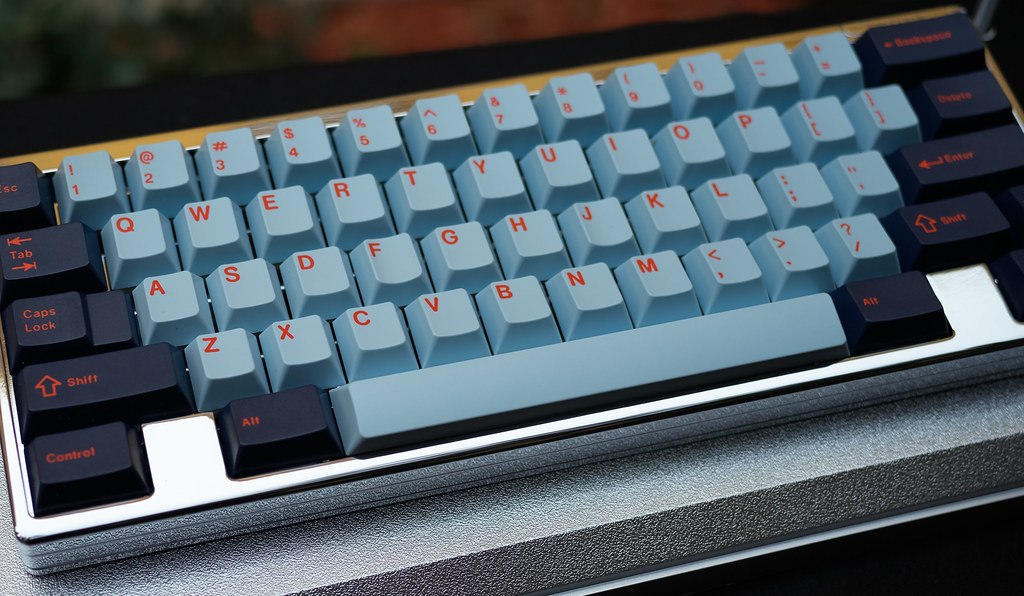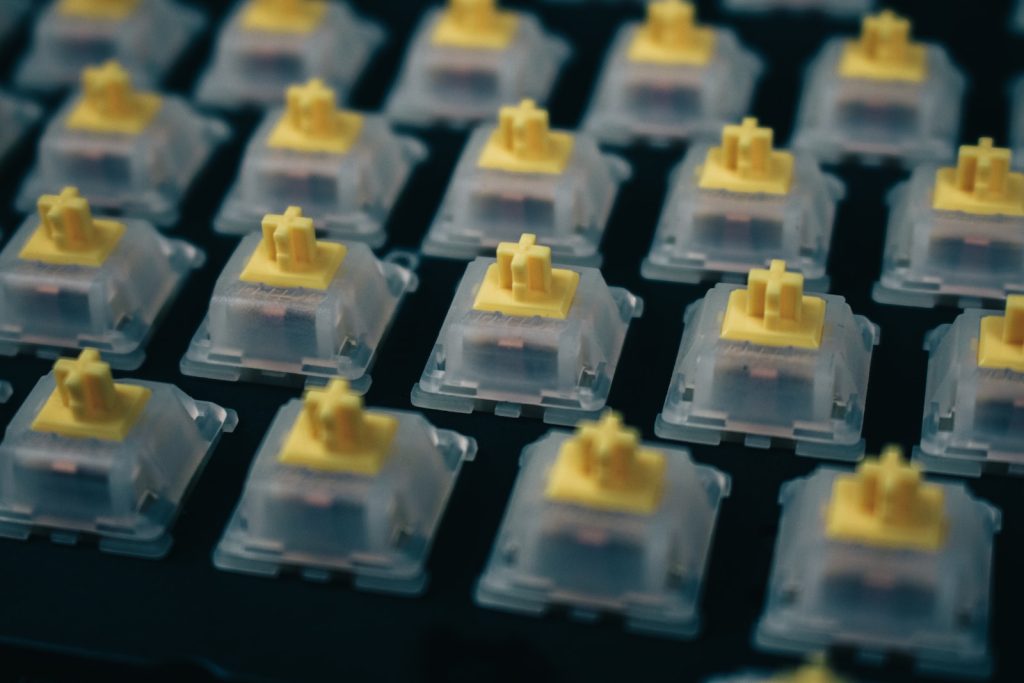Let me take you on a journey. A journey of keystrokes, tactile feedback, and the rhythmic sound of typing. Have you ever wondered why some keyboards feel different than others? Why some people swear by mechanical keyboards, while others are content with their regular ones? Today, we’re diving deep into the world of mechanical keyboards and exploring: are mechanical keyboards truly better for typing?

A Brief History of Mechanical Keyboards
To truly understand the appeal of mechanical keyboards, we need to hop into our time machine and go back a few decades. In the early days of computing, most keyboards used individual mechanical switches for each key. These keyboards were hefty, durable, and provided a distinct tactile feedback that typists loved. Over time, as technology advanced and costs needed to be cut, membrane keyboards became the norm. These were quieter, lighter, and cheaper to produce. But for many, something was lost in the transition.
What Makes Mechanical Keyboards Stand Out?
Here are some of the reasons which makes mechanical keyboards stand out.
Tactile Feedback
Mechanical keyboards are known for their tactile feedback. Each keypress is distinct. You can feel the key registering, which many claim leads to a more satisfying typing experience and potentially fewer typing errors. It’s like having a mini celebration every time you press a key!
Durability
These keyboards are built to last. While a standard membrane keyboard might give out after a few million keystrokes, a mechanical keyboard can endure tens of millions of keystrokes. For people who type a lot, this durability can be a game-changer.
Customisation
Ever wanted to personalize your keyboard? With mechanical keyboards, you can! From changing the keycaps to adjusting the backlight, the possibilities are endless. Some enthusiasts even go to the extent of building their keyboards from scratch.
Mechanical vs. Membrane Keyboards
To truly answer our question, we need to compare mechanical keyboards with their membrane counterparts. Membrane keyboards work by pressing two plastic layers together, completing a circuit and sending the keypress to the computer. They’re often quieter and require less force to press. However, they lack the tactile feedback that mechanical keyboards offer.
On the other hand, each key in a mechanical keyboard has its switch. This means that the typing experience can vary based on the type of switches you choose. From quiet and soft (like Cherry MX Reds) to loud and clicky (like Cherry MX Blues), there’s a switch for everyone.
| Criteria | Mechanical Keyboards | Membrane Keyboards |
|---|---|---|
| Tactile Feedback | High, with a distinct feel for each keypress. | Softer with less tactile feedback. |
| Durability | Can endure tens of millions of keystrokes. | Typically last for a few million keystrokes. |
| Noise Level | Varies based on switch type, can be loud or quiet. | Generally quieter than mechanical keyboards. |
| Customization | Highly customizable, from keycaps to backlighting. | Limited customization options. |
| Price | Typically more expensive due to individual switches and build quality. | More affordable, commonly found in commercial products. |
| Typing Experience | Preferred by many typists for the tactile feedback and keypress accuracy. | Suitable for casual typing, but might not be ideal for prolonged periods. |
Understanding the Different Types of Switches
Mechanical keyboards come with a variety of switches, each offering a unique typing experience. Let’s explore some of the most popular ones:
Cherry MX Reds
Ideal for those who prefer a softer touch, Cherry MX Reds require less force to actuate. They’re linear switches, meaning there’s no tactile bump or audible click. This makes them a favorite among gamers who need rapid keypresses without the distraction of noise.
Cherry MX Blues
Ah, the clicky ones! If you love the sound of typing, these switches are for you. They offer tactile feedback and a distinctive click sound. Many typists swear by them, claiming they improve typing speed and accuracy.
Cherry MX Browns
A middle ground between Reds and Blues. They offer tactile feedback without the loud click, making them suitable for both typing and gaming. If you’re in a shared space and don’t want to annoy your neighbors but still crave that tactile sensation, Browns might be your go-to.

Ergonomics and Mechanical Keyboards
One aspect often overlooked is the ergonomic benefits of mechanical keyboards. Due to their design and the ability to register keypresses without fully pressing the key down, many users find they experience less finger fatigue. The raised keycaps can also promote a more natural hand posture, reducing the risk of repetitive strain injuries.
The Aesthetics and Personal Touch
Beyond the functional benefits, there’s an entire subculture dedicated to the aesthetics of mechanical keyboards. From personalized keycaps with unique designs and fonts to underglow and backlighting options, there’s no end to how you can customize your keyboard. Some even say that their keyboard is an extension of their personality, a true reflection of their individuality.
The Environmental Angle
Durability doesn’t just mean saving money in the long run. It also means less electronic waste. The longer lifespan of mechanical keyboards compared to their membrane counterparts means fewer keyboards end up in landfills. In an age where sustainability is crucial, choosing a mechanical keyboard can be a small step towards a greener planet.
The Community Behind Mechanical Keyboards
One of the most fascinating aspects of the mechanical keyboard world is the vibrant community that’s emerged around it. Let’s delve into the heart of this passionate group.
Meetups and Conventions
All around the globe, enthusiasts gather at mechanical keyboard meetups and conventions. These events are a chance for aficionados to showcase their custom builds, exchange keycaps, and discuss the latest innovations in the industry. From Tokyo to New York, the buzz and excitement at these gatherings are palpable.
Online Forums and Social Media
Platforms like Reddit’s r/MechanicalKeyboards and various Discord channels are bustling hubs of discussion, advice, and keyboard admiration. Whether you’re a newbie seeking guidance on your first purchase or a seasoned expert sharing your latest mod, there’s a place for everyone in the online community.
The Art of Keycap Design
Keycaps are more than just plastic pieces; they’re canvases for creativity. Artists collaborate with manufacturers to produce limited edition keycap sets, often inspired by pop culture, nature, or abstract concepts. These sets can be so sought-after that they sell out within minutes of release!
DIY and Modding
For the truly dedicated, buying a keyboard off the shelf isn’t enough. The world of DIY and modding allows individuals to tailor every aspect of their keyboard. From soldering switches to lubing stabilizers, the customization options are endless. And the reward? A truly unique keyboard that’s a direct reflection of one’s personal taste and technical prowess.

The Future of Mechanical Keyboards
As technology continues to evolve, so too does the world of mechanical keyboards. Innovations in switch design, wireless capabilities, and even eco-friendly materials are on the horizon. Companies and independent creators are continually pushing the boundaries of what’s possible, ensuring that the mechanical keyboard scene remains dynamic and forward-looking.
Conclusion
In our exploration of mechanical keyboards, we’ve journeyed through their historical roots, the unique tactile experiences they offer, and the passionate community that surrounds them. From the diversity of key switches to the art of personalization and the promise of a sustainable future, mechanical keyboards stand out as more than just typing tools.
They’re a blend of engineering marvel, personal expression, and a testament to the joy of tactile feedback. Whether you’re drawn to their durability, aesthetics, or the sheer satisfaction of each keystroke, it’s evident that mechanical keyboards hold a special allure that’s hard to resist.
FAQs
What is the main difference between mechanical and membrane keyboards?
Mechanical keyboards use individual switches for each key, providing tactile feedback and durability. In contrast, membrane keyboards work by pressing two plastic layers together, often resulting in a softer and quieter typing experience.
Why do some people prefer mechanical keyboards for typing?
Many appreciate the tactile feedback, durability, and customization options that mechanical keyboards offer. They often claim a more satisfying typing experience and fewer errors due to the distinct keypress feel.
Are mechanical keyboards louder than regular keyboards?
It depends on the switch type. For instance, Cherry MX Blues are known for their audible click, while Cherry MX Reds are quieter. However, in general, mechanical keyboards tend to be louder than membrane ones.
Can you customize a mechanical keyboard?
Yes! Mechanical keyboards offer a range of customization options, from changing keycaps to adjusting backlighting. Some enthusiasts even build their keyboards from scratch.
Is there an environmental benefit to using mechanical keyboards?
Due to their longer lifespan compared to membrane keyboards, mechanical keyboards can lead to reduced electronic waste, making them a more sustainable choice in the long run.
Where can I join the mechanical keyboard community?
Online platforms like Reddit’s r/MechanicalKeyboards and various Discord channels are great places to start. There are also global meetups and conventions where enthusiasts gather to showcase and discuss their keyboards.

Experience is what matters at the end!!
Hi! This is Jacob Jay – founder of Keyboardgear.com! From childhood to adulthood, I’ve always remained passionate about IT, and the revolution in this industry, especially gaming on the PC can’t go out of my way. Since I’m an enthusiastic gamer, and I love to experience various gaming accessories, particularly mechanical keyboards, that really boost my gaming adventure manifolds. So, my nerve cells hit me to transfer my experiences into word form and share with others to identify the ideal keyboards perfectly fit for their gaming modes.
I know very well how hard it is to find the high-quality items available on the internet that ought to be exactly the same as seen as on the screen. But the counterfeiters have ruined the user’s trust. As I have passed all such situations, I’m obliged to deliver the genuinity and express the same as what I am saying.
So, now, I’m working on the mission to provide very helpful and frankly but trustworthy reviews and guides about various mechanical keyboards, mouses, and other gaming accessories as per my personal experiences and sound knowledge.
